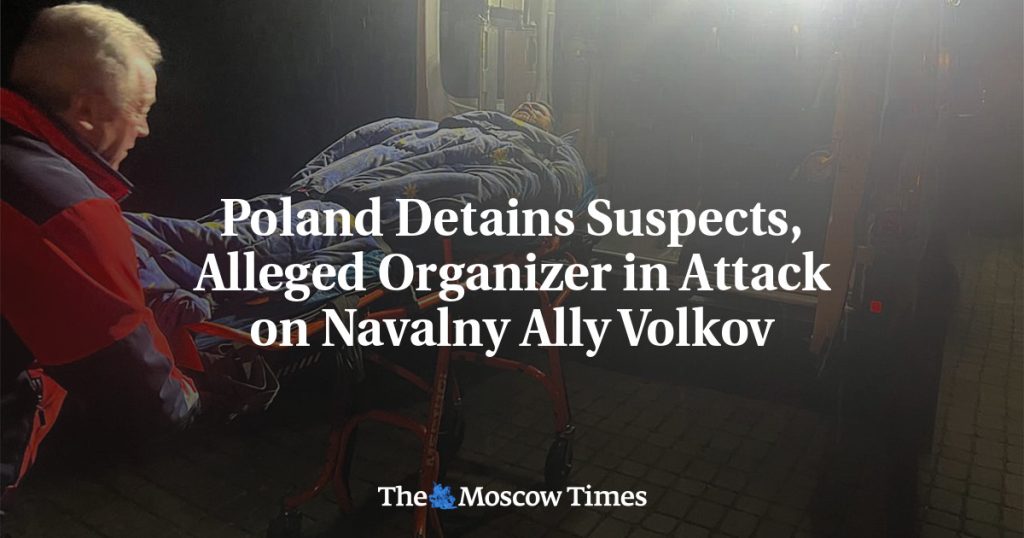Three individuals have been detained in Poland in connection with the assault on Leonid Volkov, an exiled ally of Russian opposition activist Alexei Navalny, which took place in Lithuania in March. Volkov was attacked with a hammer outside his home in Vilnius, resulting in a broken arm. The suspects are to be handed over to Lithuania after completion of the legal process. Lithuanian President Gitanas Nauseda commended Poland for its cooperation in the case, and the person who allegedly ordered the attack has also been arrested.
Donald Tusk, the Prime Minister of Poland, revealed that a Belarusian working for the Russians had directed two Poles to carry out the assault on Volkov. The assailants have already been detained, but further details were not provided. Volkov, who has been living in exile since Navalny’s groups were labeled as extremist organizations in 2021, expressed gratitude towards Lithuanian police for their thorough investigation. Nauseda and Lithuania’s counter-intelligence service have accused Russian entities of orchestrating the attack, although the Kremlin has not commented on the incident.
Following the attack on Volkov, Navalny’s widow Yulia Navalnaya disclosed that she had hired a bodyguard as a precautionary measure. She explained that she and Alexei Navalny had never had security protection before, but the incident with Volkov had caused her to reconsider her safety. Navalnaya stated that she had inherited some of her late husband’s fearless attitude, but acknowledged the importance of being cautious in such circumstances. The attack has raised concerns about the safety of individuals associated with Navalny’s opposition movement.
The assault on Volkov highlights the ongoing dangers faced by individuals involved in opposition activities against the Russian government. The incident has drawn attention to the risks associated with speaking out against the Kremlin and its policies. The international community has condemned the attack on Volkov and called for a thorough investigation to bring those responsible to justice. The solidarity shown by Lithuania and Poland in addressing the assault demonstrates a united front against such acts of violence and intimidation.
As tensions between Russia and its critics continue to escalate, the attack on Volkov serves as a reminder of the harsh realities faced by dissidents and activists who challenge the status quo. The role of external actors in targeting individuals like Volkov underscores the lengths to which authoritarian regimes will go to suppress dissent. The actions of the alleged perpetrators, including those who ordered the attack, highlight the need for increased security measures and vigilance among opposition figures. The case also underscores the importance of international cooperation in addressing threats to democracy and human rights.
Despite the challenges posed by the attack on Volkov, the response from the Lithuanian and Polish authorities signals a commitment to upholding the rule of law and protecting those at risk. By swiftly apprehending the suspects and cooperating in the investigation, both countries have demonstrated a determination to hold accountable those involved in violent acts against dissidents. The targeting of individuals like Volkov has sparked renewed calls for solidarity and support for those who courageously speak out against oppressive regimes. The international community must remain vigilant in the face of such threats and continue to advocate for the protection of human rights and democracy.















